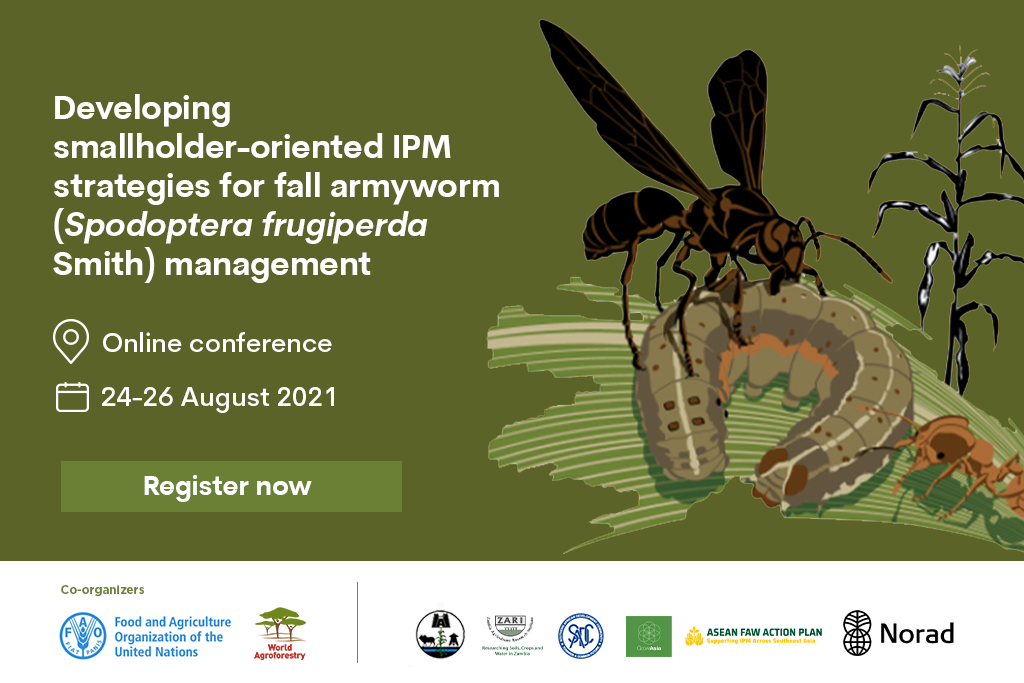
This online conference will bring together researchers from around the world working on Fall Armyworm (FAW) management to present their latest findings – We invite researchers, including early career scientists and those working at local institutions, to submit abstracts. The programme is organised into eight plenary sessions, each covering a different topic related to the development of Integrated Pest Management (IPM) for FAW and chaired by an expert in the field. These sessions will comprise a series of oral presentations of original research followed by an extended Q&A. In addition, we will hold an online Poster session, where researchers can present ‘work-in-progress’ or smaller studies, such as student work. The poster session will involve 2 minute ‘elevator pitches’, where presenters can draw attention to key findings, and posters will remain up for the duration of the conference and afterwards.
The conference is FREE to register and submit an abstract
Watch the recordings Programme
Deadlines
Submission deadline
Saturday, 14th August, 2021
Review deadline
Sunday, 22nd August, 2021
Outcome notification date
Monday, 23rd August, 2021
Fall armyworm (Spodoptera frugiperdaSmith) (FAW) is an invasive pest native to the Americas that was first detected in West Africa in 2016, and has since spread across Africa and Asia. FAW is a voraciaous pests that preferentially feeds on cereals, such as maize and rice, and hence is a threat to the food security and livelihoods of millions of smallholders.
During the conference scientists around the world working on solutions to Fall Armyworm management will present their latest results, with particular focus on promoting the development of smallholder-oriented integrated pest management strategies. We will hear from scientists working on a range of topics including agroecology, biological control, plant breeding, biological, botanical and chemical pesticides, monitoring and integrated pest management, and tools for capacity building and enhanced extension. The event will be live-streamed using Zoom and there will be both oral sessions and posters.
The online conference is followed by a FAW Focal Point meeting for Southern Africa (26 August), where the national focal points will present progress on their countries’ strategies to manage FAW and discuss the development of IPM strategies in the light of the latest research findings.
The conference is organized by the Department for Agricultural Research, Malawi, Zambian Agricultural Research Institute, World Agroforestry (ICRAF), Southern African Development Community, Food and Agriculture Organisation of the United Nations’ Sub-regional Office for Southern Africa and Grow Asia, and supported by Norwegian Agency for Development Cooperation.













